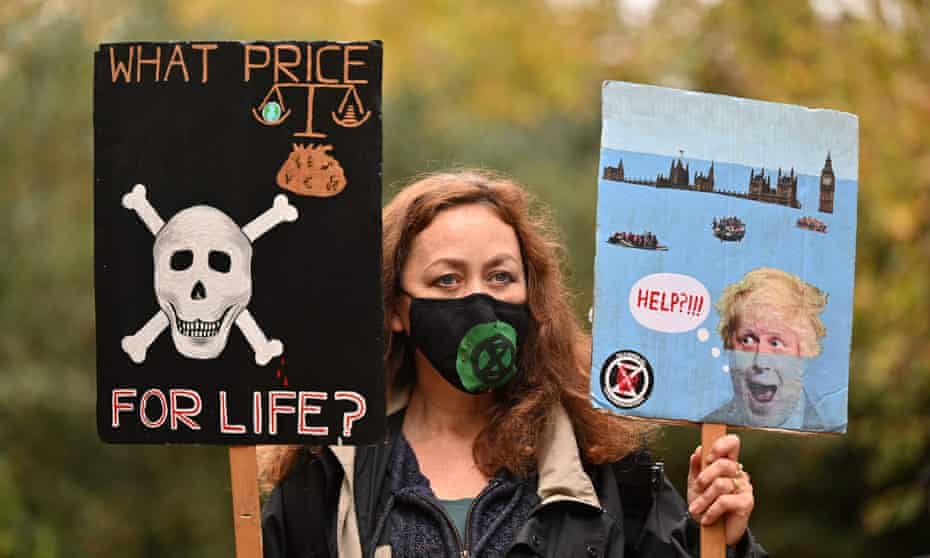Extract from The Guardian
With delegate after delegate stating there were no more deals to come, the future remains uncertain.

A climate activist makes the point in London.
Whether such a provision is enough to head off global temperature rises of only 1.5C later this century remains to be seen. At present, most analysis indicates that we are heading for a greater rise, around 2.4C, a level of heating that could have devastating consequences for low-lying nations – including many island states in the Pacific and Caribbean. They face major sea-level rises triggered by melting ice sheets in Greenland and the Antarctic. At the same time, across the globe, storms could worsen, heatwaves increase in number and intensity, and floods and droughts spread – unless we follow up Cop26 with tighter and tighter deals.
Whether we can now avoid breaking the 1.5C limit is therefore an issue that still hangs in the balance after Glasgow. Over the next 12 months nations are now going to be called on to announce individual, tighter emission goals. However, it should be noted at Glasgow, that for the past two weeks delegates have announced, one by one, that their nations could go no further in the deals they were offering.
The inference is straightforward. Unless they change their minds in 2022, there is little chance of nations improving their offers and so avoid a world that heats up by 2C or more. As one observer put it: “The 1.5C goal is alive but only just. Effectively it is taking its last breaths and unless something remarkable happens next year, it will be dead by the next Cop meeting in Egypt.”
On the other hand, Glasgow can at least claim to have hosted a Cop summit that was not an outright failure like the one that took place in Copenhagen in 2009. The door has been kept open – albeit creakily – to further improvements and accords over the next 12 months. In addition, there have been encouraging deals that have included a commitment to end deforestation by 2030, an agreement that was signed by more than 100 nations – including Brazil, which is generally seen as one of the worst offenders.
There were also promises to make farming more sustainable and less polluting while five nations, including Britain and the United States, in collaboration with a group of global charities, promised $1.7bn to support indigenous people’s conservation efforts. In addition, the US and the EU launched an initiative to cut pollution from methane, a very powerful greenhouse gas, with emissions coming from fossil fuel extraction and livestock farming. The goal is to cut methane emissions by 30% by 2030.
However,
one of the most contentious resolutions – over the phasing out of coal
and inefficient fossil fuel subsidies – remains vaguely worded. And that
is a real worry. Energy experts are clear that phasing out coal is
going to be essential to limit global heating, but the opposition to
such a measure – mainly from major coal-using countries including China,
India and South Africa – show how hard it will be to achieve that goal
and avoid a 1.5C rise. In other words, the fate of the planet is still
in the balance.
No comments:
Post a Comment